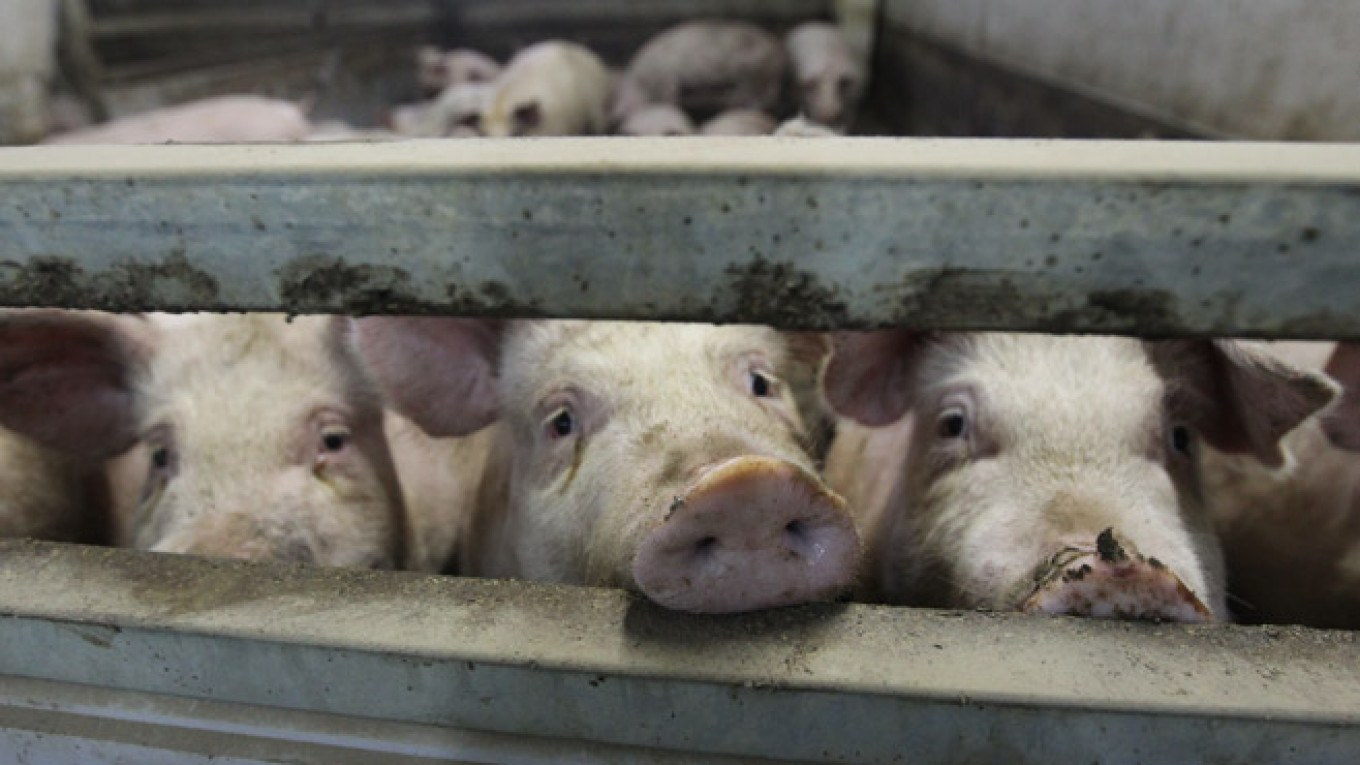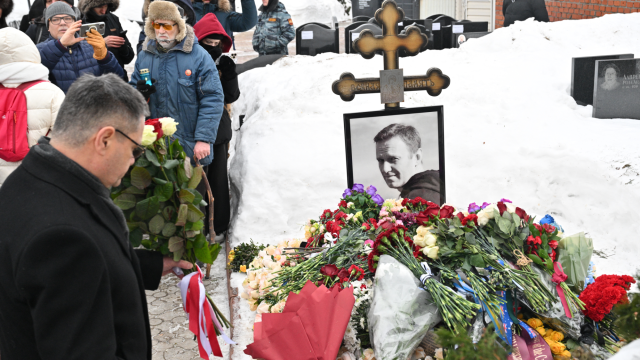Russian stalling on granting permission to U.S. factories to export pork to Russia is creating delays costing U.S. producers millions of dollars, the U.S. Meat Export Federation, or USMEF, said. Meanwhile, Brazilian exporters are ramping up their share of the Russian market.
Russia's Federal Service for Veterinary and Phytosanitary Surveillance, or Rosselkhoznadzor, banned U.S. pork and beef exports in February 2013, citing safety concerns over the additive Ractopamine, a veterinary drug used to promote leanness in meat. The ban was officially lifted in March, but with the provision that U.S. producers reregister with Rosselkhoznadzor. Two months later, U.S. exporters are increasingly frustrated at what they see as Russian foot-dragging.
"We call on Rosselkhoznadzor to answer the U.S. Department of Agriculture and respond to requests to re-register factories as quickly as possible," John Brook, USMEF regional director for Europe, Russia and the Middle East, told The Moscow Times.
Other Ractopamine users such as Canada and Brazil had imports temporarily limited by Russia in February 2013, but were able to avoid a complete ban by having certain facilities registered Ractopamine-free. As a result, Brazilian meat in particular is well-placed to make inroads in a market now devoid of U.S. meat. Not only that, but in January, following an outbreak of African Swine Fever in the European Union, Russia has blocked entry of European meat leaving an even opener market.
Brazilian meat exports have already jumped, said Miguel Griesbach de Pereira Franco, consular minister and vice-chief of mission at the Brazilian Embassy to Russia: "Brazilian exports of pork meat have reached $160.9 million in the first 4 months of this year, compared to $126.9 million in the same period of 2013," Franco said, adding that the number of facilities authorized to export beef to Russia had risen to 25 from 13 last year.
By contrast, only three U.S. pork producers have successfully reregistered since February, USMEF's Brook said. The U.S. Department of Agriculture has sent several letters to Rosselkhoznadzor, but the Russian watchdog has yet to respond, he said.
The Ukraine crisis could be behind the delays, he added: "U.S.-Russian relations are frosty right now, and while both sides say they are open for business on these technical issues, the frostiness makes it difficult to move quickly."
The U.S. pork freeze may not be the only Russian trade policy caught up in the conflict in Ukraine: Last week, Rosselkhoznadzor announced a ban on imports of Ukrainian pork to Crimea, which Russia annexed from Ukraine in March. Russia had already limited imports of Ukrainian pork, culling 200,000 tons of Ukrainian pork in April over concerns about its quality, Ukrainian newspaper Segodnya reported last month.
And if the problems faced by exporters to Russia were not already big enough, the government on Monday published a decree expanding the authority of Rosselkhoznadzor and Rospotrebnadzor, the consumer goods watchdog, to cover the all the countries of the Russia-led Customs Union, including Belarus and Kazakhstan.
Contact the author at [email protected]
A Message from The Moscow Times:
Dear readers,
We are facing unprecedented challenges. Russia's Prosecutor General's Office has designated The Moscow Times as an "undesirable" organization, criminalizing our work and putting our staff at risk of prosecution. This follows our earlier unjust labeling as a "foreign agent."
These actions are direct attempts to silence independent journalism in Russia. The authorities claim our work "discredits the decisions of the Russian leadership." We see things differently: we strive to provide accurate, unbiased reporting on Russia.
We, the journalists of The Moscow Times, refuse to be silenced. But to continue our work, we need your help.
Your support, no matter how small, makes a world of difference. If you can, please support us monthly starting from just $2. It's quick to set up, and every contribution makes a significant impact.
By supporting The Moscow Times, you're defending open, independent journalism in the face of repression. Thank you for standing with us.
Remind me later.






